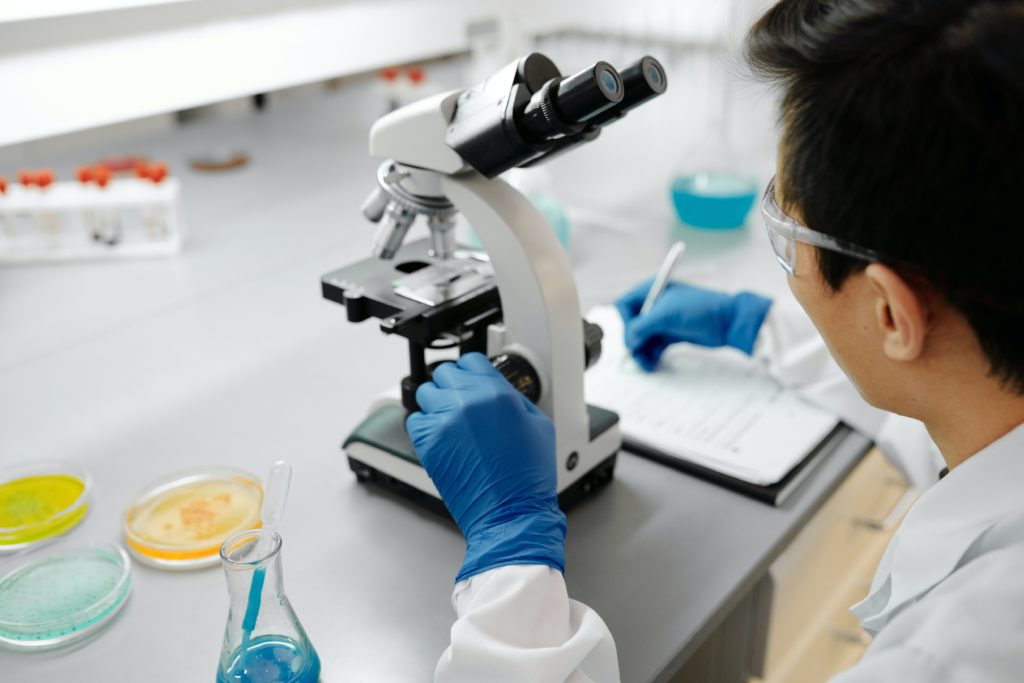Ever since the first cloning technology was developed, experts have been arguing about its ethical and moral implications.
Since then, the debate over whether human cloning is ethical, and if the argument that it will save lives in the future is even valid, continues.
Over time, different clandestine experiments have been carried out that are not supervised or approved by world governments, since the procedure is not very safe, there is no exception that the embryo is free of diseases or malformations.
Something that is agreed worldwide is that “the identity of each human being must be preserved. For this reason, the Universal Declaration of the Human Genome and Human Rights, approved by the General Conference of UNESCO in 1997, includes a consensus on the prohibition of cloning human beings for reproductive purposes” (CUIDATEPLUS, 2001), likewise we highlight several negative points of cloning:
The Cons of Human Cloning
1. It compromises the health of genetics, makes DNA vulnerable, and makes it possible to modify genes negatively. Not only these, but cloning remains a game of chance, since hundreds of experiments are carried out in which the objective is seldom achieved, and the lives of the women involved, and the embryos, are endangered.
2. It determines human beings are objects, which opposes to human dignity.
3. Cloning challenges human ethics in every aspect of society including biological, governmental, scientific, and religious. It threatens to upend millennia-old foundational pillars that support civilization as we know it. We have to ask how cloning would impact policy, our way of life, how we live together, and the answers to questions like:
- What is human life?
- What is a family?
- What is the purpose of having children?
- Is there a God?
- Are we our own creators or assistants of God’s creation?
Therapeutic Cloning

This is how the (World Youth Alliance, 2014) defines therapeutic cloning for us:
“Therapeutic” cloning, by definition, necessarily implies the destruction of a human life.
As such, it represents a unique threat to human life and dignity, since it is the first time in history that human beings would be created solely for their destruction.
Our inherent value would be ignored, and our genetic material confiscated for utilitarian purposes. Creating a human so as to destroy it removes all values from both the created clones and the existing humanity.
Should we Clone Humans?
No. Life and death are part of this universe. Allow nature to take its course.
The human being can find other alternatives to save lives, without destroying others. It is not right to destroy a life in order to save another. Human genetics, as well as that of lower lifeforms like animals, must be studied and respected, not modified so that we might play the supreme creator.
We must understand that cloning does not benefit the world. On the contrary, it creates global problems that would change everything.
Pensamientos Sobre la Clonación Humana
Desde que se desarrolló la primera tecnología de clonación, los expertos han estado discutiendo sobre sus implicaciones éticas y morales. Desde entonces ha existido la duda de saber si la clonación humana es o no ética o si por lo menos el argumento de que esto salvará vidas en el futuro es válido. A lo largo del tiempo se han realizado diferentes experimentos clandestinos que no están supervisados o aprobados por los gobiernos mundiales, ya que el procedimiento no es muy seguro, no hay salvedad de que el embrión esté libre de enfermedades o malformaciones.

Algo en lo que se está de acuerdo mundialmente es que “se debe preservar la identidad de cada ser humano. Por eso, la Declaración Universal del Genoma Humano y los Derechos Humanos, aprobada por la Conferencia General de la UNESCO, en 1997, recoge un consenso sobre la prohibición de clonar seres humanos con fines reproductivos” (CUIDATEPLUS, 2001), así mismo nos resaltan varios puntos negativos de la clonación:
1. Compromete la salud de la genética. Hace vulnerable el ADN, hace que se puedan modificar genes negativamente, y todo sería un juego de azar, ya que se hacen cientos de experimentos en los que muy pocas veces logran sus objetivos, poniendo en peligro la vida del embrión y la vida de las mujeres que se presta para el experimento.
2. Determina a los seres humanos como objetos, lo que se contrapone con la dignidad humana.
3. La ética de la humanidad en cualquier aspecto sería involucrada, la ética biológica, gubernamental, la científica y la religiosa, a que cambia por completo diferentes pilares en los que se han basado todos estos años, nuevas políticas, nuevas formas de vivir y convivir, nuevos pensamientos y respuestas rápidas a preguntas cómo:
¿Qué es la vida humana? ¿Quién es un padre? ¿Qué es una familia? ¿Cuál es el propósito de tener hijos? ¿Existe un Dios? ¿Somos nuestros propios creadores o asistentes de la creación de Dios?, ya no tendríamos incógnitas de este tamaño, nuevas personas creadas tendrán cómo base que su vida, su pensamiento, hasta su dignidad ha sido otorgada por otra persona y que así mismo se le podría arrebatar, al igual que estas, se pueden producir un sin número de pensamientos similares en creaciones clonadas, solo por la excusa de que la clonación es una solución terapéutica, sin importar las vidas perdidas en experimentos, y más adelantes para usarse como utensilios, así como la clonación animal, que se plantea usar como portadores de órganos humanos.

Así es como la (World Youth Alliance, 2014) nos define la clonación terapéutica:
“La clonación “terapéutica”, por definición, implica necesariamente la destrucción de una vida humana. Como tal, representa una amenaza única para la vida y la dignidad humana, ya que es la primera vez en la historia que los seres humanos serían creados únicamente para su destrucción: se ignora su valor inherente y se confisca su material genético con fines utilitarios”, el uso de nuevos seres para destrucción retira todos los valores tanto de los clones creados como de la humanidad ya existente.
Simplemente dejemos que la naturaleza en general tenga su flujo correcto, el ser humano puede encontrar otras alternativas para salvar vidas, sin poner en peligro otras, la genética humana tanto la animal se deben comprender y estudiar, no modificar y jugar a ser un creador supremo. Debemos entender que la clonación no beneficia el mundo, al contrario, crea problemas globales que cambiarían todo lo que conocemos sobre la genética humana y animal.
Bibliography/Bibliografía:
(s.f.). CUIDATEPLUS. (25 de Marzo de 2001). CUIDATEPLUS. Recuperado el 30 de julio de 2021, de CUIDATEPLUS: https://cuidateplus.marca.com/bienestar/2001/03/25/opinion-expertos-9850.html
Drane, J. F. (s.f.). Considerando detalladamente la Ética de la Clonación. Obtenido de Considerando detalladamente la Ética de la Clonación: https://www.uchile.cl/portal/investigacion/centro-interdisciplinario-de-estudios-en-bioetica/publicaciones/76971/considerando-detalladamente-la-etica-de-la-clonacion
Rivera, C. (07 de 04 de 2004). Clonación Humana. Obtenido de Clonación Humana: http://www.bvs.hn/RMH/pdf/2004/pdf/Vol72-1-2004-9.pdf
World Youth Alliance. (27 de 08 de 2014). World Youth Alliance. Recuperado el 02 de 08 de 2021, de World Youth Alliance: https://wya.net/wp-content/uploads/2014/08/statement_on_human_cloning.pdf








